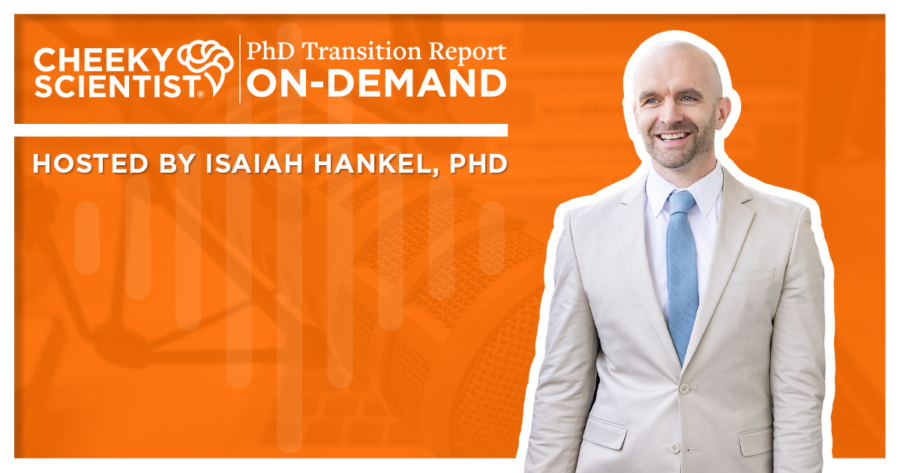Hosted By

Chief Executive Officer Cheeky Scientist

Join Isaiah as he puts seemingly harmless phrases under a microscope and examines why PhDs should actually avoid them at all costs
Here’s a quick rundown on this week’s episode:
- First, Isaiah examines some seemingly innocuous phrases and expressions that can actually damage your reputation
- Next, he reveals the psychology behind these phrases and discusses how they impact your audience
- Finally, Isaiah shares what PhDs should say instead to come across as confident and capable.
From This Week’s Show…
Some Harmless Expressions And Phrases Are Actually A Turn-Off For Hiring Managers
There are a few verbal expressions that research shows really turn off hiring managers.
These simple phrases have strong connotations that can paint you in a very unflattering light.
So, today we’re going to go over 5 of the big ones.
The first expression is “I have to.”
If, during an interview, you’re asked what your responsibilities are in your current role, instead of saying “I have to” or “I’m responsible for”, try saying “I get to” or “I was able to [if it’s a previous role].”
It’s just the difference of a few words, but there’s power in language.
One sounds like a complaint while the other sounds like a positive person who appreciates new opportunities.
Another expression that employers hate is “I feel.”
We’ve all used this phrase as a prefix to an idea that we aren’t sure will be received positively.
It’s almost an excuse.
The subtext is “I’m not confident in what I’m about to say, but here goes nothing.”
If you pose something as a question, it will be treated as a question.
Your Choice Of Words Should Convey Confidence, Composure And A Capable Attitude
…
Fifth and finally, please never say the phrase: “I’m just kidding” to an employer.
Now I’m no comedian, but if you have to explain that you were kidding, then you need to practice your delivery.
Or you shouldn’t be delivering a joke in the first place.
This expression comes across as passive-aggressive at best and manipulative at worst.
People use it to try and backpedal, to walk back a comment or a criticism that comes across as negative, petty, or unconstructive.
You might feel like this expression takes the sting out of a biting comment, but the truth is, it just reinforces that you know what you said, but don’t want to be judged for saying it.
Simple statements like these can have a subconscious effect on how others see you.
…
** for the full podcast, check out the audio player above.
If you’re ready to start your transition into industry, you can apply to book a free Transition Call with our founder Isaiah Hankel, PhD or one of our Transition Specialists. Apply to book a Transition Call here.










